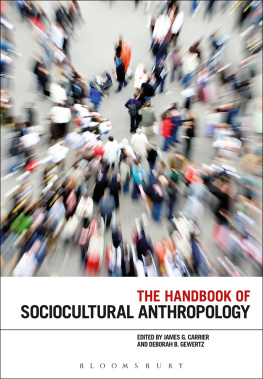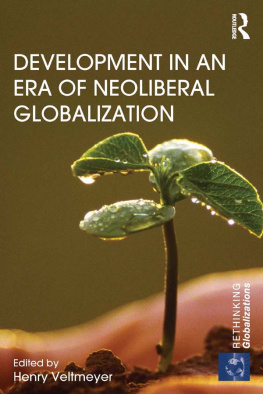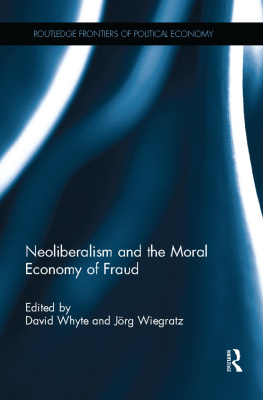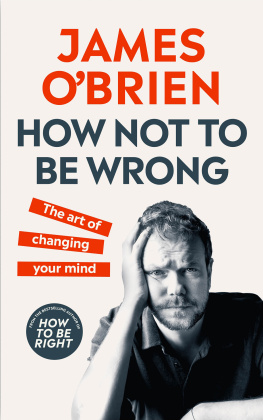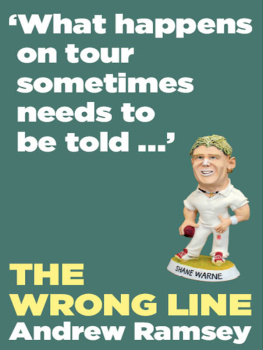ECONOMY, CRIME AND WRONG IN A NEOLIBERAL ERA
EASA Series
Published in association with the European Association of Social Anthropologists (EASA)
Series Editor: Aleksandar Bokovi, University of Belgrade
Social anthropology in Europe is growing, and the variety of work being done is expanding. This series is intended to present the best of the work produced by members of the EASA, both in monographs and in edited collections. The studies in this series describe societies, processes and institutions around the world, and are intended for both scholarly and student readership.
For a full volume listing, please see back matter.
First published in 2018 by
Berghahn Books
www.berghahnbooks.com
2018 James G. Carrier
All rights reserved. Except for the quotation of short passages for the purposes of criticism and review, no part of this book may be reproduced in any form or by any means, electronic or mechanical, including photocopying, recording, or any information storage and retrieval system now known or to be invented, without written permission of the publisher.
Library of Congress Cataloging-in-Publication Data
A C.I.P. cataloging record is available from the Library of Congress
British Library Cataloguing in Publication Data
A catalogue record for this book is available from the British Library
ISBN 978-1-78920-044-7 hardback
ISBN 978-1-78920-045-4 ebook
Contents
Preface
Introduction
Economy, Crime and Wrong in a Neoliberal Era
James G. Carrier
Chapter 1
Marketing Clientelism vs Corruption: Pharmaceutical Off-label Promotion on Trial
Kalman Applbaum
Chapter 2
The Measure of Sociality: Quantification, Control and Economic Deviance
Emil A. Ryrvik
Chapter 3
Under Pressure: Financial Supervision in the Post-2008 European Union
Daniel Seabra Lopes
Chapter 4
Of Taxation, Instability, Fraud and Calculation
Thomas Cantens
Chapter 5
Marketing Marijuana: Prohibition, Medicalization and the Commodity
Michael Polson
Chapter 6
Neoliberal Citizenship and the Politics of Corruption: Redefining Informal Exchange in Romanian Healthcare
Sabina Stan
Chapter 7
Neoliberalism, Violent Crime and the Moral Economy of Migrants
Kathy Powell
Chapter 8
How Does Neoliberalism Relate to Unauthorized Migration? The USMexico Case
Josiah McC. Heyman
Conclusion
All That Is Normal Melts into Air: Rethinking Neoliberal Rules and Deviance
Steven Sampson
Preface
For years I have been a regular reader of the business pages of The New York Times and The Guardian. Around 2008 the stories that I was reading began to change; it was the beginning of the bursting of the credit bubble that had been so important in the American and British economies that I know best, as well as elsewhere.
The change in what I was reading was as much a matter of tone as anything else. Previously, those pages mostly contained fairly straightforward reporting of business and economic news what was going up or down, who was buying or selling what, what the Federal Reserve Board or the Bank of England had to say. The emerging new tone took business much less at face value, and increasingly resembled something else I had been reading regularly for years, namely the Slicker column in Private Eye, which was probably the best source of investigative business journalism I knew of, though Gretchen Morgensons work in The New York Times came close. That tone was adversarial; not because it reflected an opposition to business per se, but because it was based on an awareness that sharp dealing, sleight of hand and trickery can exist in even the most staid corporate offices.
As my invocation of the bursting of the credit bubble suggests, much of this new tone appeared in reporting about financial institutions, some of which I invoke in the Introduction to this volume. However, and perhaps because of what was revealed about institutions in one commercial sector, more and more such stories appeared about more and more firms in more and more commercial sectors, some of which I also invoke in the Introduction. Commercial wrongdoing, it seemed, had become news.
How might I make sense of this change? One obvious answer was that it was something relatively new. It was a consequence of the extension and deregulation of markets that was part of economic reform that began around 1980, commonly seen as a sign of the growing influence of neoliberalism and commonly associated with the slogan Greed is Good. The desire to investigate the adequacy of that answer led me to undertake the reading and thinking that, in turn, led to this volume. As is clear in the pages that follow, that obvious answer is valid only in part.
A volume on economic wrongdoing could take many forms. Given that most of the people who have contributed to this one are anthropologists, it could easily have been dominated by a concern with individuals, their perceptions and agency, especially marginal individuals. Instead, and reflecting my argument that such a concern is an inadequate basis for the discipline (see Carrier 2016), I sought contributors who would take a more systemic approach. With such an approach, we can begin to make sense of the forces, structures and relationships at work in economy and society that make it more or less likely that some people will do things that others would call economic wrongdoing, and also make it more or less likely that they would see the things that they do as unexceptionable and even laudable. And that is the foundation for understanding the sorts of activities that are the concern of this volume.
A Note on Usage
As material is quoted accurately, no emphasis has been added or removed unless otherwise noted.
James G. Carrier
References
Carrier, James G. (ed.). 2016. After the Crisis: Anthropological Thought, Neoliberalism and the Aftermath. London: Routledge.
Introduction
Economy, Crime and Wrong in a Neoliberal Era
James G. Carrier
Economic wrongdoing has been around since people have possessed objects worth having and fellows who want them. Also, and for just about as long, some people have complained about these activities and those who undertake them, and other people have defended them. Although the activities, complaints and defences are ancient, they are likely to take on different forms and raise different questions in different eras.
The era at issue in this volume is commonly called the era of neoliberalism, which began in earnest in the 1970s. Our purpose is to consider whether there are forms of economic activity, expectations of the normal and the abnormal, and understandings of the proper and the improper that are distinctive to that era. Such consideration is appropriate because neoliberalism includes a set of assertions about what proper economic behaviour is, part of a view of what economic activity and economy more generally are and ought to be. Inevitably, then, the rise of neoliberalism has made the question of proper and improper economic activity more visible than usual.



